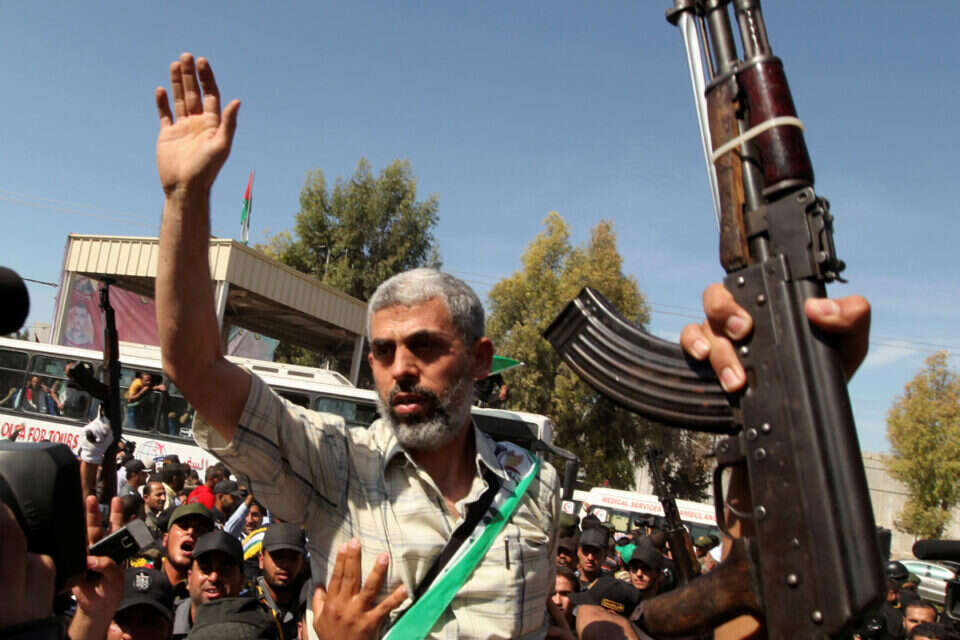Hamas leader Yahya Sinwar was elected several years in a row to the list of the 100 most influential people in a major economic newspaper in Israel. Last year, the climate crisis came first, and in the top ten were leaders such as Vladimir Putin and Yair Lapid, alongside potential leaders such as Esther Hayut and Gali Bahar-Miara.
It was believed that if Sinwar's demands to bring money into the Gaza Strip and tens of thousands of workers into Israel were met, quiet would be maintained. Since then, it has been increasingly believed that some of them entered Israel to collect intelligence. In practice, it was Israel that gave Hamas quiet. Sinwar, who pushed aside the other influencers on the list, carried out the massacre and took center stage of public discourse in Israel.
To a certain extent, Hamas's modus operandi is reminiscent of Qatar's, whose secret success lies in its duplicitousness. Some 300,<> Qataris enjoy economic well-being, while about <>.<> million foreign workers are held in slavery conditions and limited in their ability to leave its borders. The regime, which finances global terrorism, is based on Sharia law, with no freedom of expression or equality. But in the same breath, Qatar preaches democracy in the Middle East through its Al Jazeera English, donates billions to Western universities and funds radical programs on colonialism and human rights.
So is Hamas. In order to gain legitimacy in the international, Arab and Islamic arenas, over the past decade the terrorist organization has specialized in downplaying the religious motive and externalizing the national motive. On the other hand, he continued his military buildup and established the Nukhba commando unit. Despite Hamas' resource-intensive military network, most of its operatives fight in civilian clothes, as part of a tactic that cements its image as a popular national liberation movement.
Academics, Shin Bet interrogators, senior security officials and commentators in the Israeli media believed Hamas's appearance. Sinwar became a star while still in prison, and was interviewed in fluent Hebrew in prime time. His release in the Shalit deal in 2011 was met with reservations, but even after that, Sinwar was perceived as seeking to turn Hamas into a legitimate political movement.
The attitude of the security establishment towards senior figures in the detained terrorist organizations is part of an orderly intelligence concept. Almost every terrorist arrested is considered a potential intelligence asset, or an assistant in maintaining order inside and outside the prison, and therefore receives the best conditions. The absurd petition to allow a murderer serving two life sentences to play a PlayStation in his cell shows that the terrorist operatives learned the system better than the system learned them or them.
In retrospect, the investment was unnecessary. In order to produce quality intelligence, it is enough to look at Palestinian popular culture. During the month of Ramadan last year, for example, Hamas' drama series "Fist of the Free" ("Qabdat al-Ahrar") was broadcast, which presented in detail the October 7 plan, including kidnapping soldiers and taking over a bad base. Hamas marketed it as the Palestinian Fauda, and it was distributed for free to Arab and foreign channels as part of the national struggle.
To produce quality intelligence, it is enough to look at Palestinian popular culture. Last Ramadan, the Palestinian "Fauda" series was broadcast, which presented in detail the plan of the massacre
"Sinwar and his gang are crazy," the former communications minister in the Hamas government told interrogators after his recent arrest. The footage from his interrogation, in which he describes Sinwar as a demonic and hated figure, did not renew anything, but they were echoed in the Israeli media and fed the excessive discourse around him. Journalists and experts write about him constantly, appear in the studios and deal with his intentions.
But after carrying out the act of his life, the attempts to analyze his character seem like nothing more than a childish fascination with a crime baron. Sinwar's dictatorship is not the fruit of his feverish mind; Gaza is controlled by far greater interests. Hamas' goals also do not depend on Sinwar and his "gang" – the destruction of Israel has been the organization's main goal since its establishment. The compulsive preoccupation with Sinwar's character is mainly indicative of another concept that needs to change: that if we remove Sinwar, terrorism will stop.
Wrong? We'll fix it! If you find a mistake in the article, please share with us

